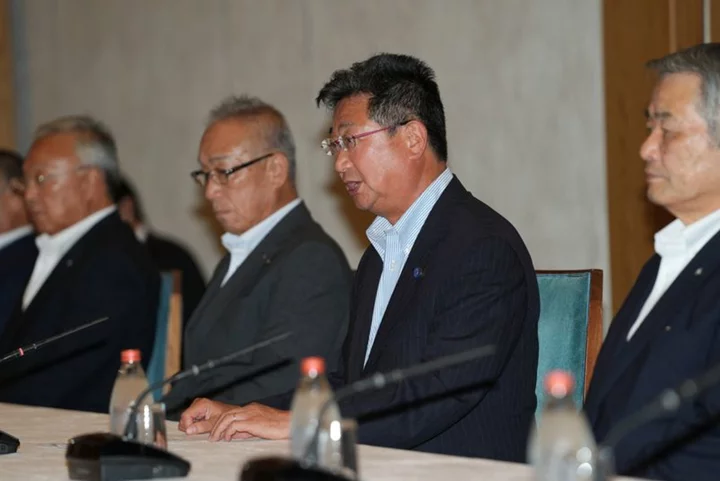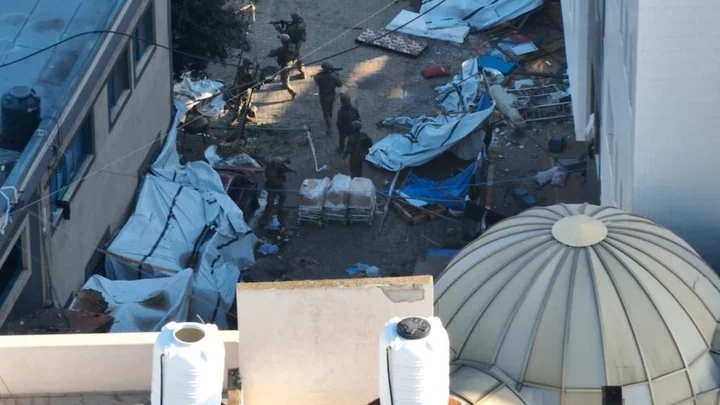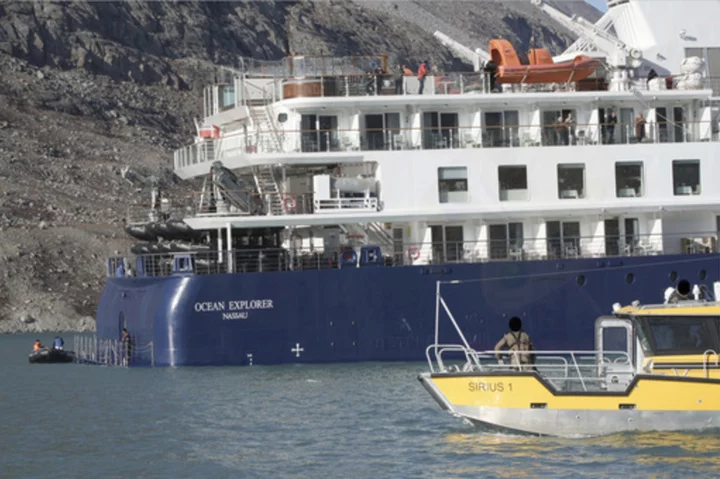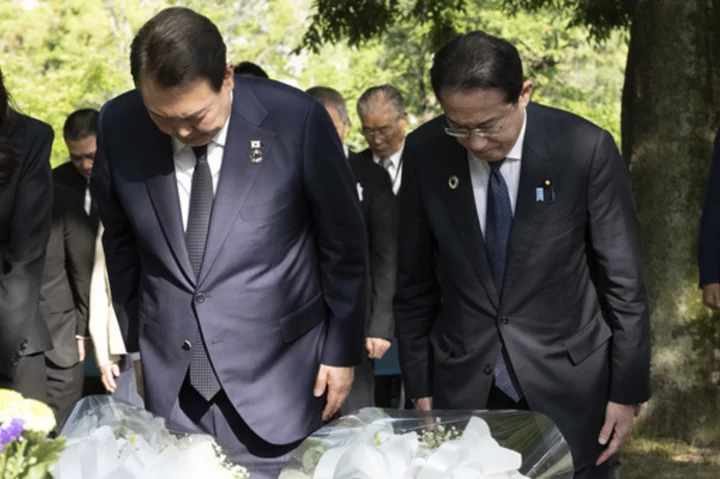TOKYO (Reuters) -The leader of a Japanese fisheries industry group told officials on Monday he was "greatly concerned" about the discharge of treated radioactive water set to be released into the sea from the wrecked Fukushima nuclear plant.
The government is expected to decide soon, perhaps within days, when to start releasing the water, equivalent to the contents of 500 Olympic-size swimming pools, despite objections at home and abroad to the plan.
The water has mostly been used to cool nuclear reactors damaged in 2011 when tsunami waves crashed into the plant on the coast north of Tokyo after an earthquake.
It has been treated to remove most radioactive elements except for tritium, an isotope of hydrogen that must be diluted because it is difficult to filter.
Japanese Prime Minister Fumio Kishida, who visited the plant on Sunday, said last week his government was in the final stage of deciding when to begin the release. Cabinet ministers will discuss the issue on Tuesday, Kyodo news agency said.
Industry Minister Yasutoshi Nishimura met Masanobu Sakamoto, the head of the National Federation of Fisheries Cooperative Associations, to offer safety assurances about the water.
"We remain firmly opposed to the release of the treated water," said Sakamoto, who is set to meet Kishida later on Monday.
The predicted decades-long release raised anxiety among the fishing industry, which was "gravely concerned," he added.
Nishimura acknowledged the concerns but said the water release had become a pressing matter.
"This is not something we can put off, if we want to decommission the Fukushima nuclear plant and revive the area," he said.
Last month the International Atomic Energy Agency (IAEA) approved the government's plan for the water, which it says can no longer be stored on site.
Despite such assurances, the prospect of more than a million tons of water being pumped into the Pacific from the nuclear plant owned by Tokyo Electric Power Company has sparked alarm.
China, in particular, has criticised it and banned some seafood imports. Citizens' groups in Japan and South Korea are also up in arms.
(Reporting by Satoshi Sugiyama and Elaine Lies; Writing by Elaine Lies; Editing by Muralikumar Anantharaman and Clarence Fernandez)









